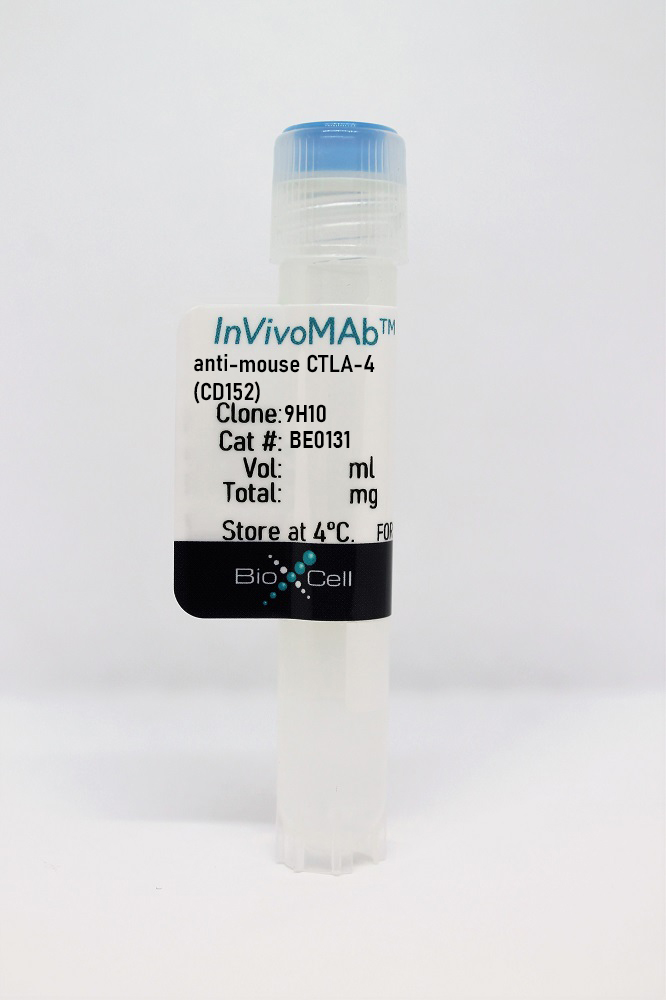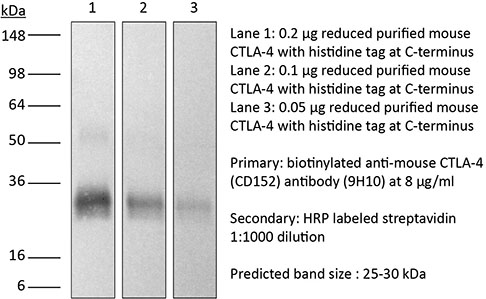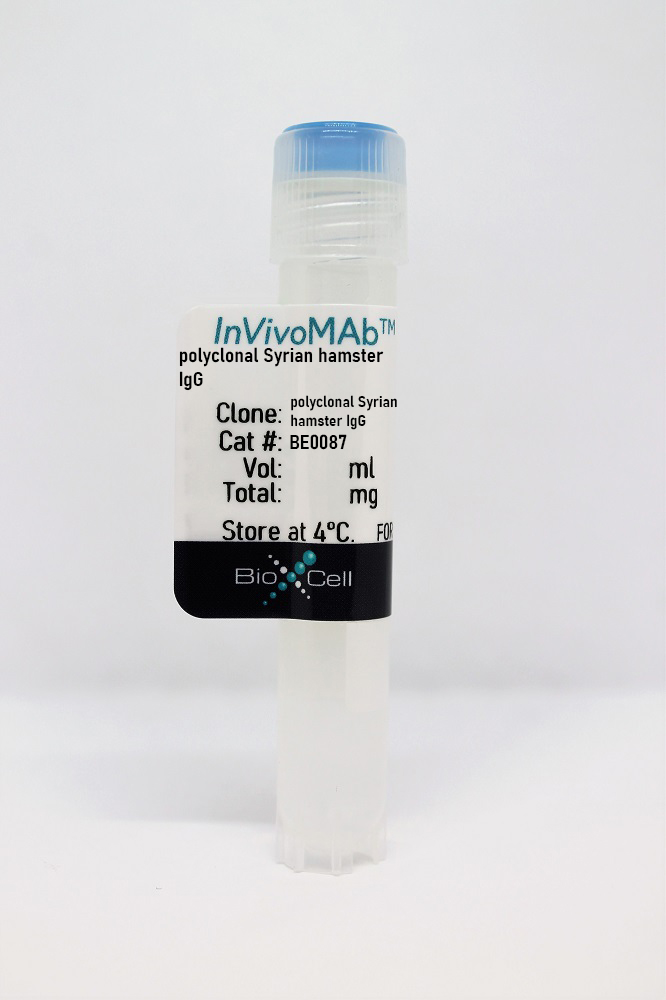
InVivoMAb anti-mouse CTLA-4 (CD152)
BE0131
ApplicationsWestern Blot, Neutralisation/Blocking
Product group Antibodies
ReactivityMouse
Overview
- SupplierBio X Cell
- Product NameInVivoMAb anti-mouse CTLA-4 (CD152)
- Delivery Days Customer3
- ApplicationsWestern Blot, Neutralisation/Blocking
- CertificationResearch Use Only
- ClonalityMonoclonal
- Clone ID9H10
- Concentration4-11 mg/ml
- HostHamster
- IsotypeIgG
- ReactivityMouse
- Storage Instruction2°C to 8°C
- UNSPSC12352203
References
- Robust Antitumor Responses Result from Local Chemotherapy and CTLA-4 Blockade. Ariyan CE et al., 2018 Feb, Cancer Immunol ResRead more
- Loss of IFN-gamma Pathway Genes in Tumor Cells as a Mechanism of Resistance to Anti-CTLA-4 Therapy. Gao J et al., 2016 Oct 6, CellRead more
- Unique potential of 4-1BB agonist antibody to promote durable regression of HPV+ tumors when combined with an E6/E7 peptide vaccine. Bartkowiak T et al., 2015 Sep 22, Proc Natl Acad Sci U S ARead more
- Melanoma-intrinsic beta-catenin signalling prevents anti-tumour immunity. Spranger S et al., 2015 Jul 9, NatureRead more
- Radiation and dual checkpoint blockade activate non-redundant immune mechanisms in cancer. Twyman-Saint Victor C et al., 2015 Apr 16, NatureRead more
- Biopolymer implants enhance the efficacy of adoptive T-cell therapy. Stephan SB et al., 2015 Jan, Nat BiotechnolRead more
- Depletion of carcinoma-associated fibroblasts and fibrosis induces immunosuppression and accelerates pancreas cancer with reduced survival. Oezdemir BC et al., 2014 Jun 16, Cancer CellRead more
- Candida-elicited murine Th17 cells express high Ctla-4 compared with Th1 cells and are resistant to costimulation blockade. Krummey SM et al., 2014 Mar 1, J ImmunolRead more
- Restoring immune function of tumor-specific CD4+ T cells during recurrence of melanoma. Goding SR et al., 2013 May 1, J ImmunolRead more
- Dacarbazine-mediated upregulation of NKG2D ligands on tumor cells activates NK and CD8 T cells and restrains melanoma growth. Hervieu A et al., 2013 Feb, J Invest DermatolRead more




